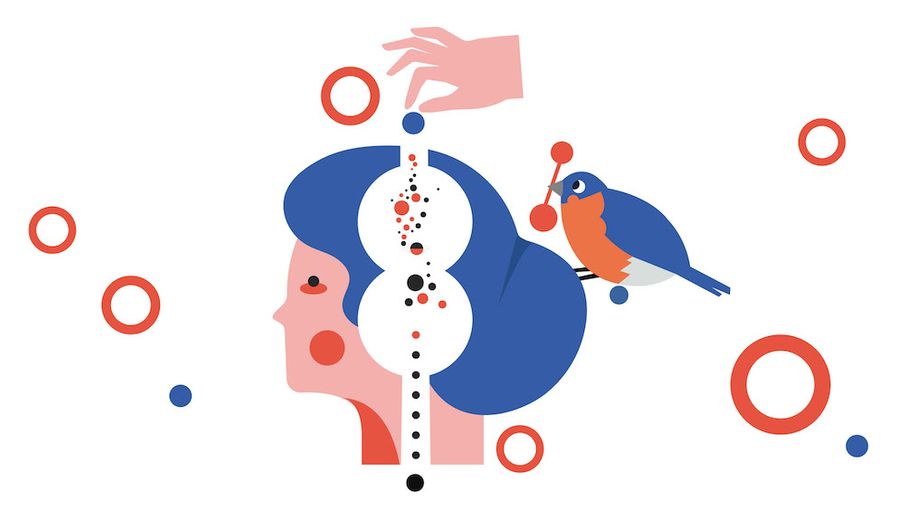If you’re regularly bogged down by negative thoughts, it might be time to change the narrative with one ‘fast’ that we can endorse
When I think of fasting, it’s often associated with giving up some of the good stuff, such as chocolate or cake! But a negativity fast is quite the opposite: it’s actively tuning out of the negativity around you, and reframing your mindset to a more automatic positive approach.
Many of us find it tough to quieten negativity, especially at the moment when it can feel like we’re faced with scary stats everywhere we turn. So unless we make a conscious decision to step away, negativity might stick around. That said, a negativity fast isn’t about ignoring the bad things, but instead making a determined effort to manage the negativity you consume, to acknowledge when you’re spiralling into a cycle of unkind thoughts, and retrain your mindset.
There are a few general ways of getting started, so discover these simple practises you can apply to your own circumstances, and reap the rewards of clarity and harmony.
Acknowledge negativity
The first step is to acknowledge when you’re struggling with negative thoughts, or outside influences.
Therapist and coach Sean Murphy says that by picking up on them, we welcome a state of clarity. “The most useful approach to your own negative thinking is to shine a light on it. Most of our thinking is unconscious, and few people walk around intentionally trying to be negative! If you truly become aware of your thinking (your assumptions, judgments, and explanations of life) many things become clearer.”
Understanding how the negativity you consume – or even express – affects your mental health is key, particularly the effects of prolonged exposure to negativity, which can induce high anxiety. This could be a challenging friendship, an ongoing struggle with self-esteem, or social media.
"Gratitude is an antidote to negativity. Try it – it’s very hard to be negative and thankful at the same time"
“Constantly focusing on the negative things in life has an effect on the brain, and switches up our overall anxiety levels, telling us we’re in danger, and that we need to be on high alert,” says counsellor Joanne Greaves. “Our mind starts to come up with ways to keep us safe, in the form of negative scenarios of things that could happen, to try to pre-empt the perceived danger.”
Set an intention
Research suggests that it takes, on average, 66 days to form a new habit, so in this case, you could practise a negativity fast for 10 weeks, setting new habit goals such as asking yourself a question before you make a snap judgment, or dedicating a few minutes each day to note any negative conversations you have.
Sean says a journal is helpful in this instance to record ‘invisible’ assumptions. “When you get to know these assumptions, you’ll get to know that they can be substituted for better thoughts quite quickly,” he explains. “Try changing, ‘I must not make a mistake’ to ‘Mistakes are signs I’m trying something new or challenging. If I’m not making mistakes, I’m probably not making anything, full stop!’”
When you have set your intention(s) re-read them, and then ask yourself if you’ve applied kindness and honesty towards them.

Manage negative influences
It’s common in life to encounter someone whose energy just doesn’t fit with yours, and that’s OK, we’re all unique. But when this clash comes at a detriment to your mental wellbeing, you can take action to distance yourself from the negative influence.
This is particularly challenging if it’s someone significant in your life. But practising meditation or mindfulness regularly can help you to observe the thoughts of frustration and negativity, without engaging with them.
Joanne says: “With regular practise, you learn to observe and give space to thoughts and accept that they are just thoughts, and let them pass in their own time. This can be very difficult if your anxiety is high, but setting a small amount of time every day to practise gets the mind in the habit of letting thoughts pass.”
"If you find yourself getting caught in a spiral of negative thoughts, it’s helpful to identify the trigger"
Reframe your mindset
If you find yourself getting caught in a spiral of negative thoughts, it’s helpful to identify the trigger, and work through that. This could be through journaling, support groups, or talking therapy.
One approach you can try is to practise gratitude; it challenges your negative thoughts and widens your perspective. Sean notes that practising gratitude is now a research-backed method in tackling long-term feelings of negativity. “Gratitude is an antidote to negativity. Try it – it’s very hard to be negative and thankful at the same time.”
And gratitude doesn’t have to exist only for the grand gestures – simplicity is the key here. “A reinvigorating hot shower after a run or a favourite biscuit with a cuppa, we need to make the time and space for those moments we appreciate, or they disappear.”
With seven weeks left of my own fast, I still have some learning to do, but the benefits are already starting to blossom.
For more support with negative thinking, find a therapist on counselling-directory.org.uk


Comments